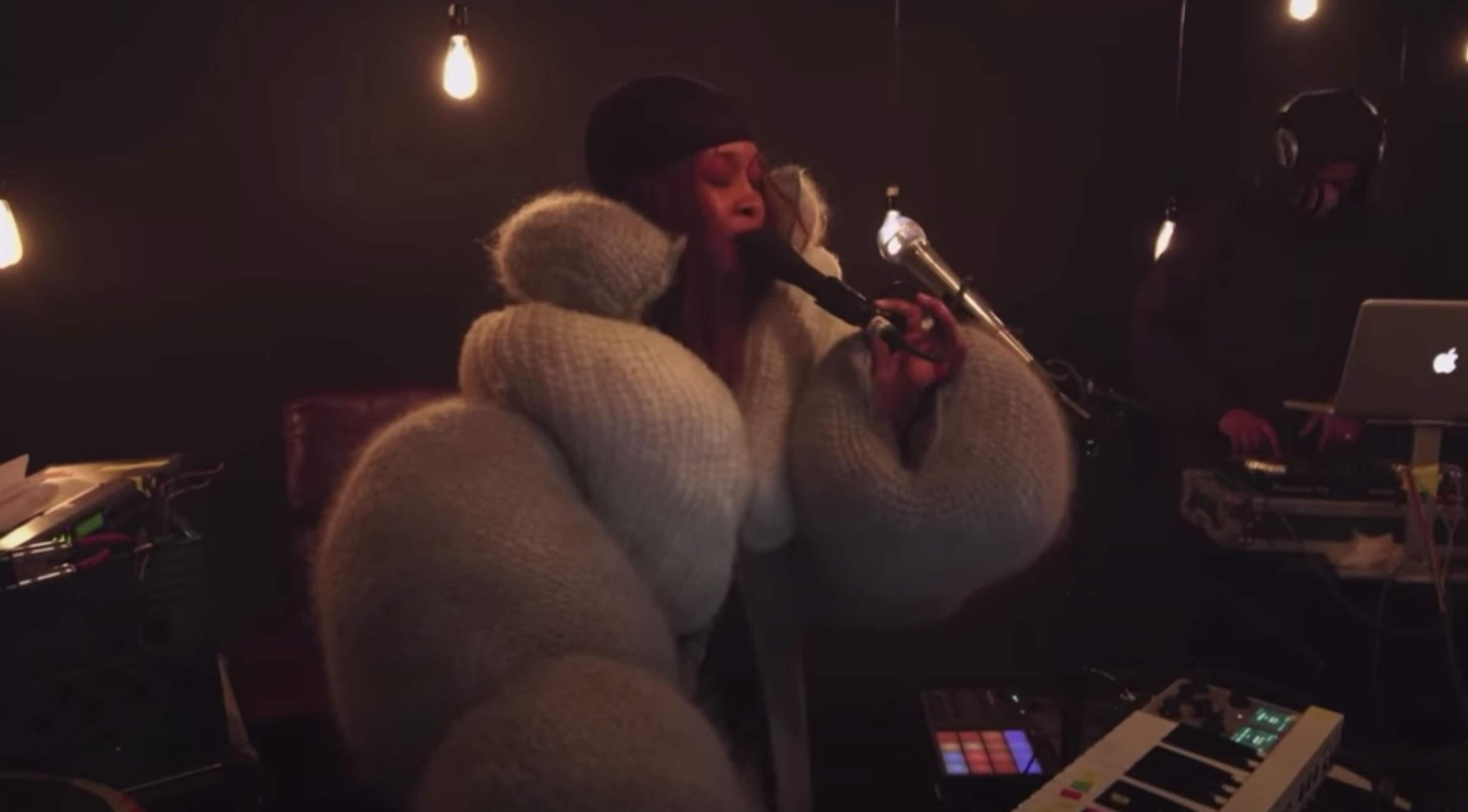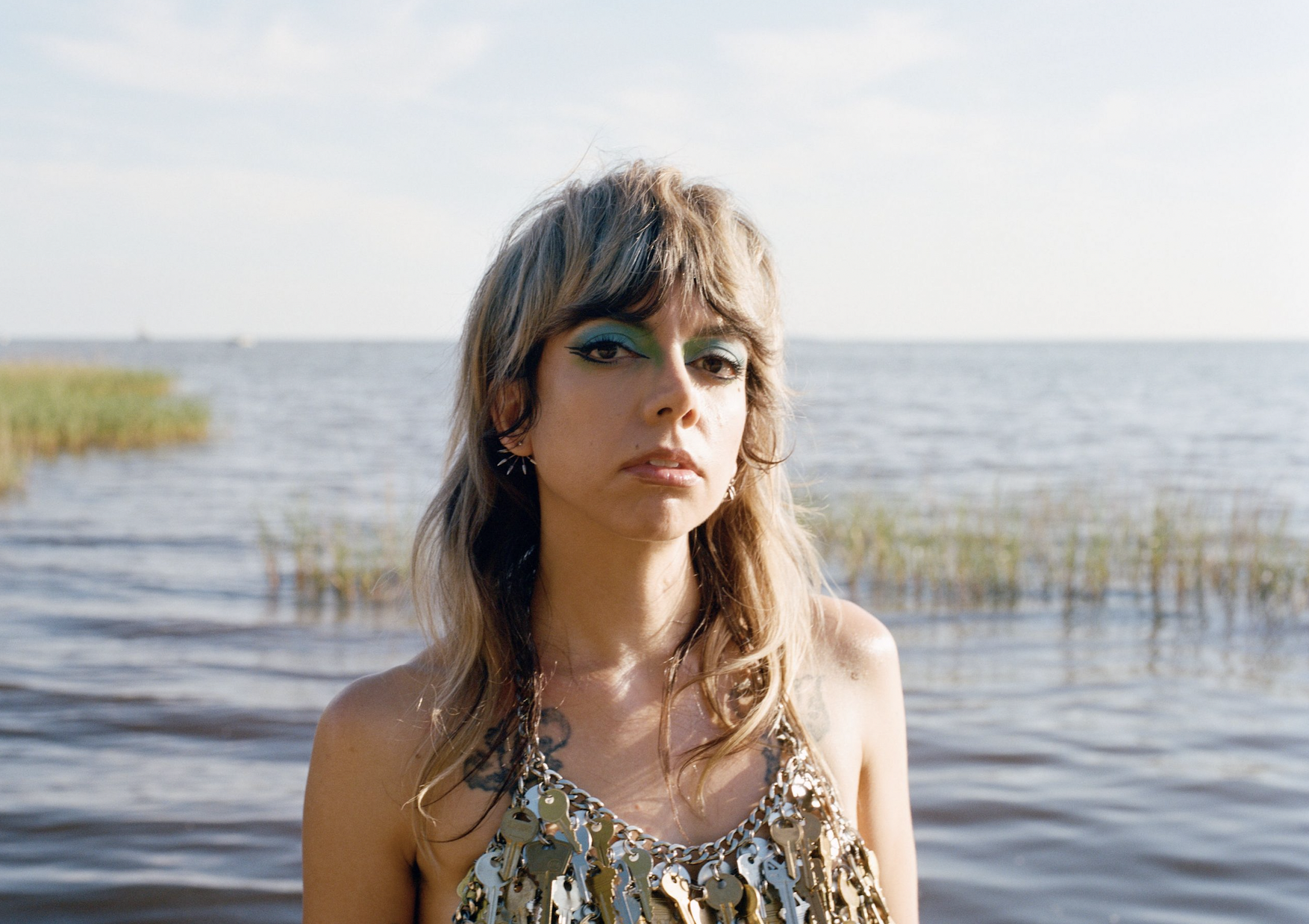Chalaban Unites Founder's Traditional Roots and Contemporary Art

Said Tichiti of Chalaban
Moroccan-born Said Tichiti adapts his cultural heritage to make music that reflects his life today.
“The most important is how to update traditions to reflect today's realities,” Said Tichiti of Chalaban says. “My objective is not to reproduce the folklore, but is to develop my originality.”
Tichiti leads Chalaban, a band that plays a hybrid of his Mororccan roots with those of the musicians he met in Hungary, where he has been based for more than 20 years. Chalaban will play Zony Mash Brewery on Saturday, and a New Orleans stop makes sense because Chalaban’s macro project is one New Orleans artists are dealing with, whether consciously or unconsciously. How do you make roots-based music when the contexts that shaped it have changed? And what constitutes “traditional music”? Does it have to sound like it was made in another time or place, or are there more nuanced ways for musicians to be true to traditions, roots, and themselves as artists?
In Chalaban’s music, you can hear Tichiti’s Afro-Arab roots in his Arabic lyrics and the instrumental crosstalk underpinned by rolling percussion, but his bandmates and his experience in Europe add musical elements from the Balkans and the Carpathian Basin to the musical mix. Like many people playing traditional music in New Orleans now, Tichiti takes his culture and its music seriously, but he brings his experience as an ex-pat to his compositions and performances, just as his bandmates bring their lives and accumulated experience to the music as well. The results clearly come from somewhere, but they represent Chalaban responding to living in 2022. If Folkways recorded a “Traditional Music of Morocco” album in the 1960s, it doesn’t sound like this.
I recently swapped email with Tichiti to better be able to appreciate Saturday’s show.
Some North African music is based on folk music. Is that the case with Chalaban’s music?
Chalaban music has south Moroccan roots, where I come from with strong Western African influences. But as the musical project was born in Central Europe, in Budapest, where I am established since 1998, I keep this project very adapted to my personal story/heritage: Berber mother, black African father, and 26 years living in Europe (studying in Paris and established in Budapest ).
For me music is like any other language; I should have a cultural background in order to survive. That's why I had to choose Moroccan culture with all its components as the band's identity.
How does your European home affect the music? Has that impact changed over the years?
Hungary is very known for its rich musical heritage, especially in Classical music, and folk music. The Hungarian folkloric dance clubs known as “táncház” are listed as an intangible world heritage by UNESCO. And the young music scene is very dynamic and colorful. So, to start my musical adventure in this country was not very difficult. I have a large choice of talented musicians open to collaborating.
But the most important was to find a common language in order to play together. Hopefully, in the artistic field, it works perfectly when each artist makes a step toward the other. I learn many things from western music in terms of arrangements and the dynamic of each song or composition. At the same time, all musicians I collaborate with started to understand the African rhythms, the trance music.
Does being an expatriate affect the way you think about your country’s musical heritage?
Being an expatriate allows me to have enough distance from my musical heritage and gives me an objective vision of Moroccan music. And my mission was not only to understand this tradition but also to communicate it to my colleagues. Morocco still has very strong musical traditions practiced by old and young generations. These traditions will never disappear because it's related to many religious brotherhoods: Issawa, Hmadsha, Gnawa, Aïta, Hassani..etc.
For me music is like history, it is an open book where we can add our chapter. This is what I am working on. I don't want to reproduce Moroccan folklore, but just trying to open it to new sounds and new spaces. It reflects the flexibility of this culture. Moroccan Culture was born multicultural: Berbers, Jewish, Arabs, Africans, and Andalusians are all parts of this rich civilization.
In America, I often think about music and how it reflects the rural or an urban experience of the person who made it. I don’t know your music well enough to hear that distinction. Which does your music represent?
In Morocco musically thinking, we don't have this Rural / Urban duality because approximately 90 percent of Moroccans are rurals. It was only following the independence of Morocco in 1956 we can talk about an urban Morocco by the development of big cities like Casablanca or Marrakesh. I come from a small city called Guelmim / the Gate of The Sahara. It's between a big village and a small city. The same musical styles you can find everywhere.
I consider myself an impressionist musician. My only guide is my intuition. Usually my songs are never finalized, and by playing song many times, it takes a new form. Music is a Happening.
Creator of My Spilt Milk and its spin-off Christmas music website and podcast, TwelveSongsOfChristmas.com.






